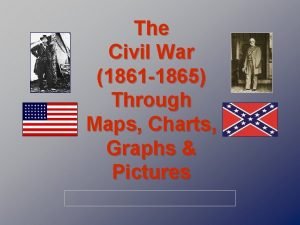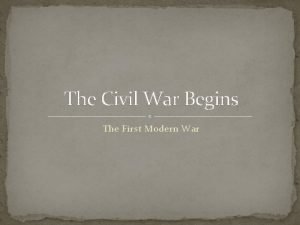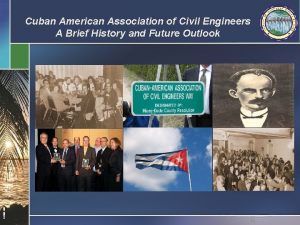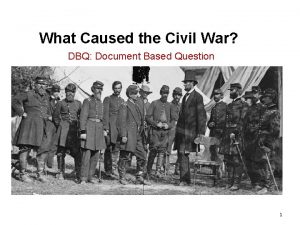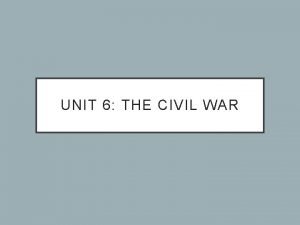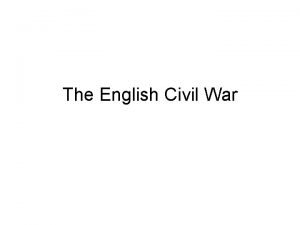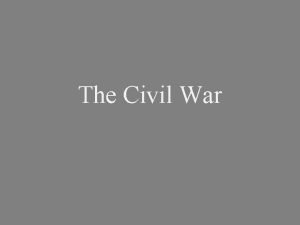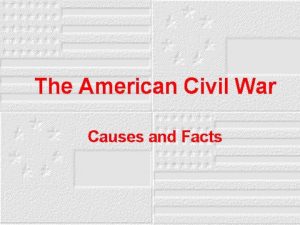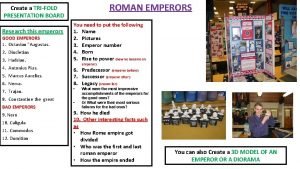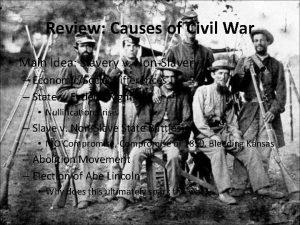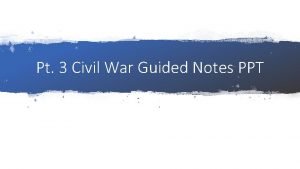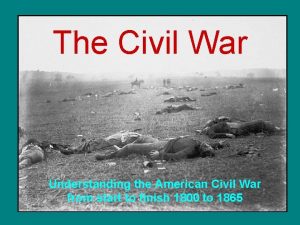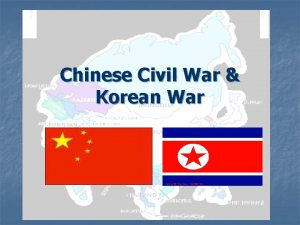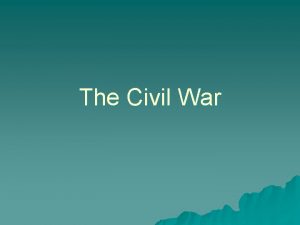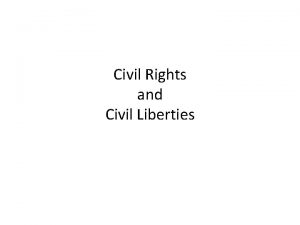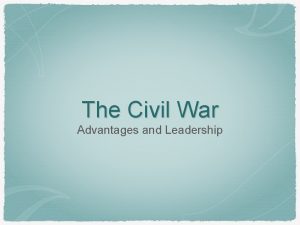The American Civil War Leadership The War The















- Slides: 15

The American Civil War Leadership The War The Outcome

Jefferson Davis Confederate States of America President l West Point graduate and Mexican War veteran l Demanding leader who did not tolerate disagreement, interfered in military affairs and appointments l Lacks strong support from southerners l

Robert E Lee West Point graduate and Mexican War veteran l Resigns from U. S. Army to serve in the Confederate forces l Commander of the Northern Army of Virginia l Brilliant commander who took the fight to his enemy l

Abraham Lincoln l l l President during Civil War and 16 th president Legislator from Illinois A gifted leader and public speaker Sought to preserve the Union and to contain slavery’s growth Assassinated during second term in 1865

Ulysses S. Grant West Point graduate and veteran of Mexican War l His victory at Vicksburg provides him with command of the Union Army l Believes in “total war” l Elected 18 th president of United States in 1868 l

Clara Barton Witnesses the horror of the 1 st Civil War battle l Organizes a rapid response of supplies and donations to provide help in field hospitals. Pushes for sanitary practices in hospitals l Founded American Red Cross chapter in 1882 l

April 12, 1861 Confederate troops open fire on Fort Sumter in Charleston, South Carolina. The Civil War begins!

Bull Run, 1861 the 1 st battle of the Civil War. It shows that the war is going to be long and costly.

Antietam, September 16 -18 1862 considered the single bloodiest day in the American history.

Emancipation Proclamation l September 22, 1862, declared that all slaves in the rebellious Confederate states would be free. Following the proclamation, many slaves in these states walked away from plantations and sought protection from Union forces. The proclamation did not apply to slaves living in border states or to areas in the South occupied by federal troops. It greatly hurt the Confederate war effort and provided additional manpower to the Union.

Vicksburg, May-July 1863. The Union victory divides the south in half greatly weakening it.

Gettysburg 1863 July 1 -3, Lee’s gamble to destroy the Union army signals the end for the Confederate cause.

Gettysburg Address l Speech made at the dedication of a national cemetery at Gettysburg. The speech captures the spirit of liberty and freedom ideally held by citizens of a democracy from.

Appomattox Courthouse, April 1865 Lee’s army is surrounded on three sides. The Confederates surrender. The Union wins.

The Death of Lincoln is assassinated by John Wilkes Booth on April 14, 1865 at Ford’s Theater in Washington D. C. l After shooting Lincoln, Booth shouts “Sic Semper Tyrannis” l
 American civil war battles map
American civil war battles map Civil war first modern war
Civil war first modern war Toward civil war lesson 3 secession and war
Toward civil war lesson 3 secession and war Civil rights webquest
Civil rights webquest Cuban american association of civil engineers
Cuban american association of civil engineers Causes of the civil war dbq
Causes of the civil war dbq Civil war map activity
Civil war map activity Shermans neckties
Shermans neckties Gettysburg battle
Gettysburg battle English civil war timeline
English civil war timeline What led to civil war
What led to civil war Civil war facts
Civil war facts Civil war staar questions
Civil war staar questions Trifold presentation
Trifold presentation Blockade
Blockade Civil war ppt and guided notes
Civil war ppt and guided notes
